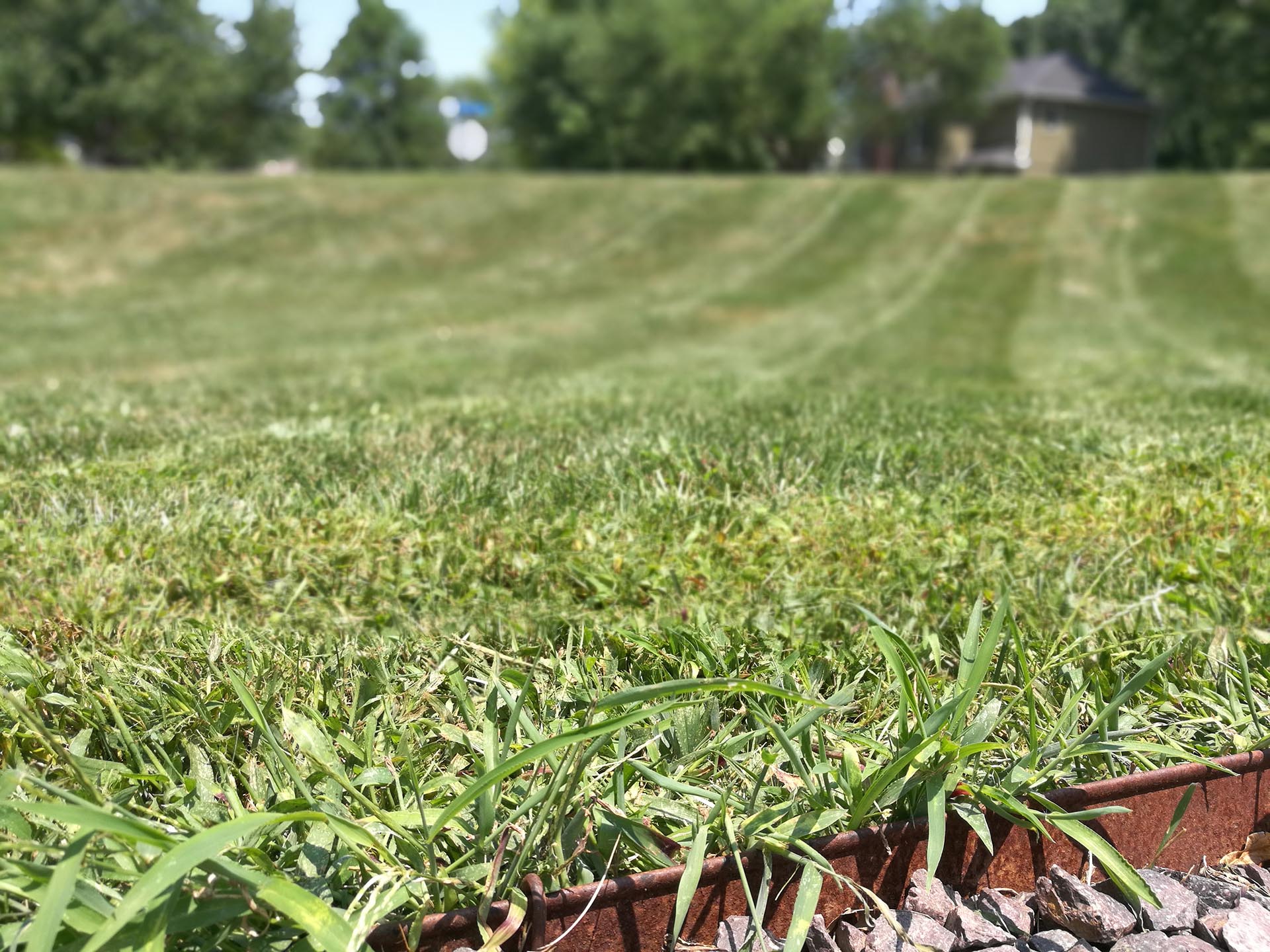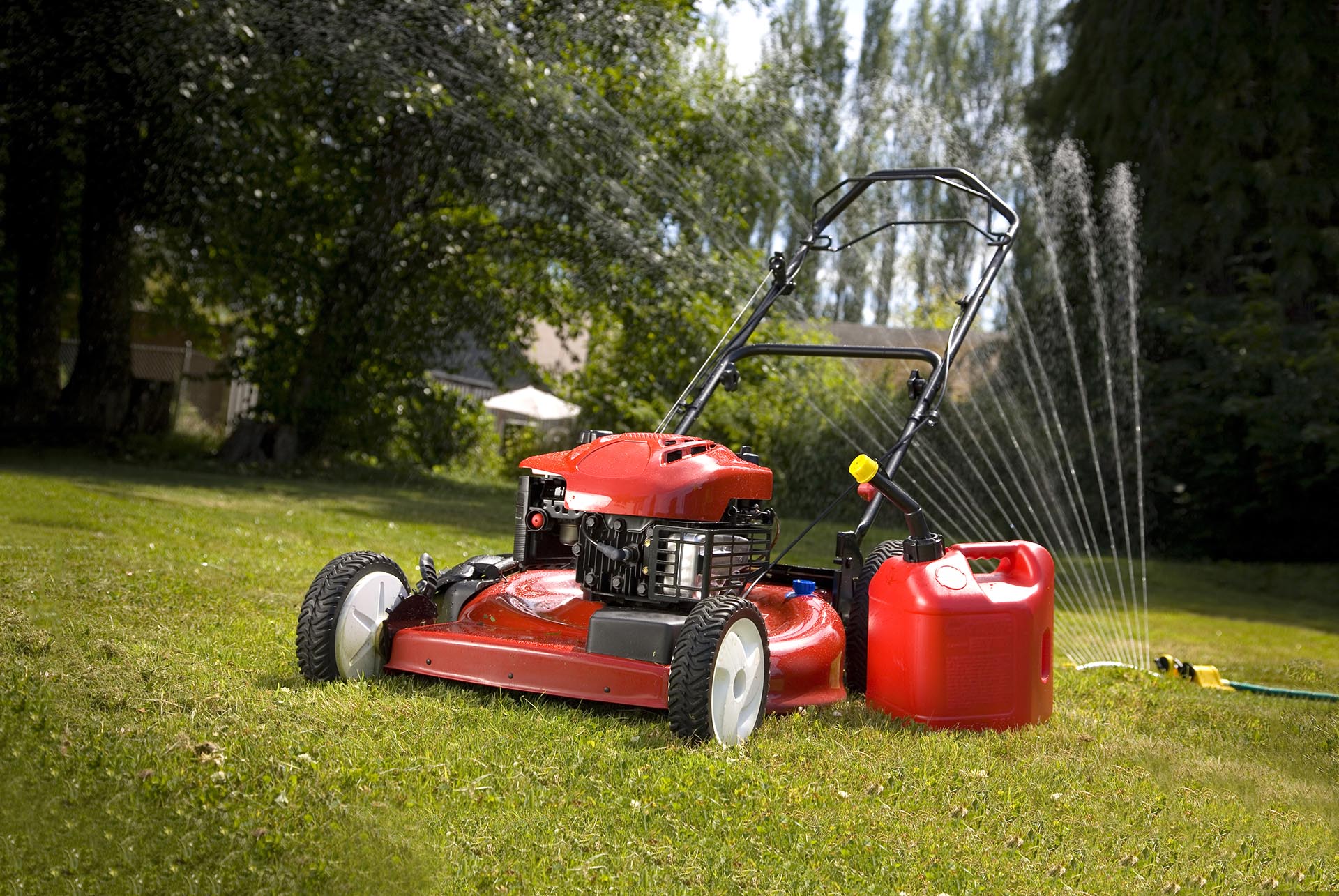Caring for Your Lawn in the Summer Heat
(Content Writing for Sutherlands HomeBase, a construction and home improvement chain located in Kansas, Missouri, Texas and Louisiana)

Summer is in full swing and with it comes the heat! Heat waves are ripping across the country with Heat Advisories in many states. Although the heat can be brutal, it doesn’t have to be a death sentence for your lawn.
Care For Yourself First
First and foremost, think of yourself when doing yard work. Avoid mowing your lawn and weeding during the heat of the day. When it is really hot out, mowing can cause heat exhaustion, sun burns or dehydration. Try to mow your lawn early before it gets too hot out or in the evening when it starts to cool down. If you must mow during the heat of the day, be sure to drink plenty of water. According to the American Academy of Dermatology[2], be sure to wear broad spectrum sunscreen with at least SPF 30 and water resistance. A hat and protective clothing are also important to protect you from the heat.
But before you get out and mow your lawn first thing it the morning, give it a little time to dry. Mowing while wet can be slippery and can also cause uneven cuts. It can also tear the grass and spread disease when wet. Mowing in the evening will give your grass the entire night to heal and recover before the next round of heat.

When and How Much to Water
It is best to water early in the morning, before it gets really hot. This helps minimize evaporation so your grass can absorb as much water as possible. Watering in the evening can increase your chance of disease.
When watering, more water less often is much better than daily watering. Watering two to three times a week for a full hour will allow the water to penetrate the roots. On the reverse side, if you water a smaller amount more frequently, you will cause your grass roots to become shallower, making them weaker. For best results, wait until the lawn completely dries out before watering again. If some areas dry out sooner than others, you can spot water those and then do a full water when everything is dry.
Water one to two inches a week total, including rainfall, and do not water after it rains. When soil stays wet it can cause issues such as fungus and disease.

Mowing
When mowing, the best time to mow is in the evening after the sun has set. This will help keep you cool and the grass roots moist. When you mow, only mow about ⅓ of the height. Removing too much grass will allow the grass to get hotter in the summer while only removing ⅓ will help it stay cool. Grass can actually benefit from being left a little longer in the summer to protect it. If you normally mow at 2.5 inches, try switching to 3 inches in the hot part of the summer.
Be sure your blades are sharp. A dull blade can tear the grass versus a clean cut, allowing the grass to heal quicker and reduce brown appearances.
When it is really hot with drought conditions, hold off on mowing. Mowing causes damage to the lawn and when the lawn is already stressed from dry hot conditions, it can damage the lawn even further. Wait until after rainfall or after watering before mowing.
Fertilizing
You may think fertilizing sounds like a good idea in the summer to keep your grass healthy but that is actually not true. Fertilizer stimulates your lawn to grow which in turn can stress your lawn out during the heat of summer. Wait until Fall to apply your fertilizer so the lawn can recover from summer damage while getting ready for winter. Also avoid aeration and dethatching during the summer as those also cause temporary damage and make it harder for your lawn to recover.
Summary
It’s not hard to keep your lawn in tip top shape even when it’s really hot out, just follow these simple steps and your lawn will stay nice and healthy all summer long!
*Water in the early morning to reduce evaporation and reduce disease.
*Water 1-2 inches per week max, including rainfall.
*Only cut off ⅓ of your grass at a time. Keep your grass taller if possible.
*Keep your blades sharp.
*Don’t mow during drought.
*Don’t fertilize in the summer.
Original Article: https://homebaselumber.com/caring-for-your-lawn-in-the-summer-heat/
